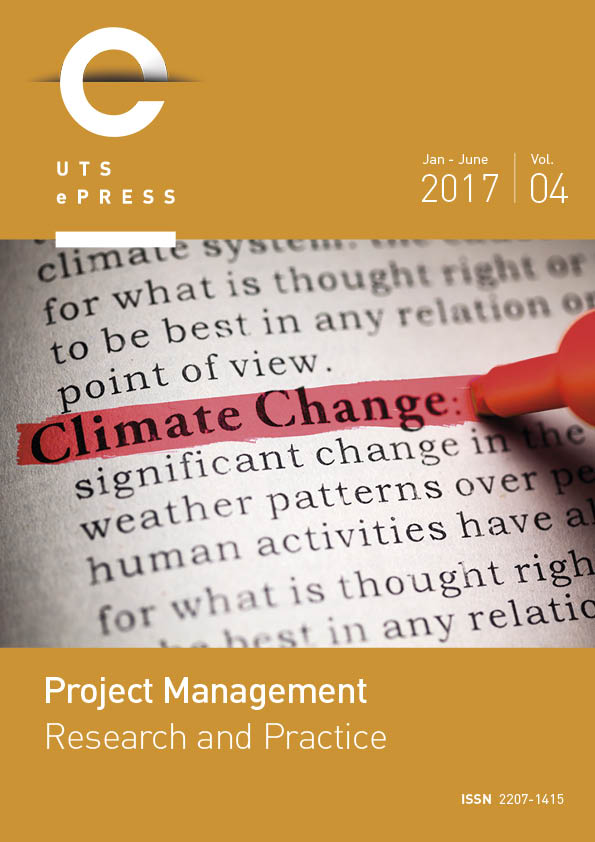Project Management Yinyang: Coupling project success and client satisfaction
Main Article Content
Abstract
Our research applies paradox theory to a project management construct to help project management researchers and practitioners understand the tensions that can exist between project success and client satisfaction. Our research highlights that although project success and client satisfaction are both present within a project management construct, they also belong to different functional systems. Project success and client satisfaction have different systemic-discourses and use different language games to convey information. These distinctions can create latent and sometimes salient tensions within the project management construct that project managers must understand, embrace, and work with.
We have used a Grounded Theory (GT) methodology to explore the lived experience of project managers, and from this have identified a phenomenon which we have termed project management yinyang.
Project management yinyang is the state that exists when both project success and Client satisfaction are tightly coupled within the project management construct. Project management yinyang highlights that these two phenomena cannot be viewed as separate elements because the ‘seed’ of each exists within the other. And to truly achieve one, you must also achieve the other.
Our findings indicate that in order to create project management yinyang the project manager must embrace a paradoxical yet holistic philosophy. They must understand the complementarity, interdependency, and structural coupling that exists between the positivist and interpretivist paradigms within the project management construct. They must understand how satisfaction (Yin) and success (Yang) are created through focus. Furthermore, they must understand how project management yinyang is separate from, but borne from, the convergence of the other two elements.
Article Details
Issue
Section
Authors who publish with this journal agree to the following terms:
a) Authors retain copyright and grant the journal right of first publication with the work simultaneously licensed under a Creative Commons Attribution License that allows others to share and adapt the work with an acknowledgement of the work's authorship and initial publication in this journal.
b) Authors are able to enter into separate, additional contractual arrangements for the non-exclusive distribution of the journal's published version of the work (e.g., post it to an institutional repository or publish it in a book), with an acknowledgement of its initial publication in this journal.
c) Authors are permitted and encouraged to post their work online (e.g., in institutional repositories or on their website) prior to and during the submission process, as it can lead to productive exchanges, as well as earlier and greater citation of published work (See The Open Access Citation Advantage Service). Where authors include such a work in an institutional repository or on their website (ie. a copy of a work which has been published in a UTS ePRESS journal, or a pre-print or post-print version of that work), we request that they include a statement that acknowledges the UTS ePRESS publication including the name of the journal, the volume number and a web-link to the journal item.
d) Authors should be aware that the Creative Commons Attribution (CC-BY) License permits readers to share (copy and redistribute the work in any medium or format) and adapt (remix, transform, and build upon the work) for any purpose, even commercially, provided they also give appropriate credit to the work, provide a link to the license, and indicate if changes were made. They may do these things in any reasonable manner, but not in any way that suggests you or your publisher endorses their use.
